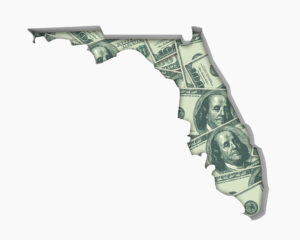Will New Corporate Tax Plans Hurt the U.S. in the End?

The winds of change are blowing when it comes to taxes and corporate taxes are no exception. President Trump and the House are both ready to lower the corporate tax rate in an effort to create a more business friendly environment for U.S. companies here in the states. Currently, the corporate tax system is a mess, which is why so many large companies keep so much of their earnings overseas, and that costs the U.S. billions in tax revenue.
The basic premise behind the current administration’s plan is to change the current model of tax on the return to capital into a model that taxes only extraordinary profits. The plan would do this by taxing corporate cash flows. The plan would make three major changes to accomplish this.
Number one, any investment outlays would not have to be depreciated over time, but instead they could be written off during the same year they were undertaken. The next major change would make interest payments to creditors non-tax-deductible. Lastly, in order to continue to promote our county’s competitiveness with the rest of the world, corporations would not have to include export receipts when they calculate their taxable income. On the other hand, they would not be allowed to deduct from their income payments to foreign affiliates and suppliers.
However, there are some who feel this plan could be very detrimental to our nation’s economy in the long run. The first problem is that the change could increase income inequality even more between the wealthy the rest of the country. The tax change could also increase uncertainty, put additional burdens on certain sectors and cause a volatile redistribution of income. The tax change could also hurt the global economy, according to some circles and the long-term of cost of making this tax change could end up causing large tax increases or spending reductions.
Of course, there are two sides to every story, so it remains to be seen what changes are made and how they will affect corporations and our nation’s financial well-being.
https://www.nytimes.com/2017/01/07/upshot/the-major-potential-impact-of-a-corporate-tax-overhaul.html?_r=0
https://www.washingtonpost.com/opinions/trump-and-ryan-are-right-to-tackle-corporate-taxes-but-their-approach-would-do-harm/2017/01/08/e7abd204-d429-11e6-9cb0-54ab630851e8_story.html?utm_term=.fd3e2b28a833
Where Is Your Paycheck Going?
While many of the nation’s high net-worth individuals make much of their income through capital gains, those who still collect a paycheck are doling out of cash to the IRS every time they get paid. The same is true for all taxpayers no matter what income level they fall in. In fact, according to a…
Should the IRS File Your Taxes for You?
Imagine a world where you didn’t have to file your own taxes. Of course, you can use an experienced and professional tax and accounting firm like GROCO to do your taxes for you, but what if you didn’t even have to send your tax return information to an accountant? Could that ever really happen? In…
Unstable Stock Market Could Hurt State Tax Budgets
While many feel the wealthy should be paying more in taxes, the efforts to enforce this strategy does have some consequences for state budgets. Many of the country’s wealthiest individuals hold the majority of their wealth in stocks. That means when the stock market goes down, so do the tax payments of the wealthy. In…
Florida Looking to Lure More Wealthy Taxpayers
The reports regarding many of the nation’s wealthy packing up and moving to different states in order to avoid the high taxes where they currently reside continue to mount. According to one such report, David Tepper, the president of Appaloosa Management L.P., who is the wealthiest resident of New Jersey, is in fact no longer…




